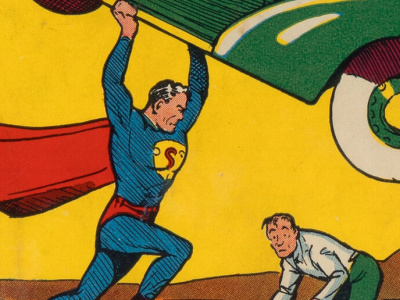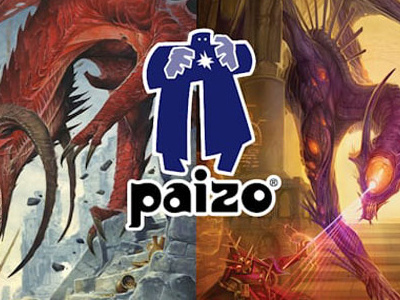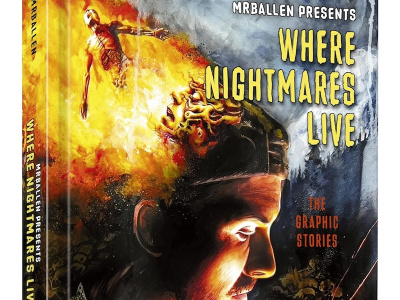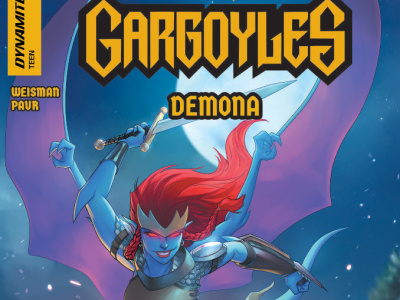
We caught up with DC Comics CEO and Publisher Paul Levitz recently for a wide-ranging interview in which we talked about the rapidly changing graphic novel business; the transition from the “homespun” period of the business, price increases on comics, and digital comics; and content decisions in DC’s collaboration with Teshkeel and in transmedia uses of its characters (a la Batman: The Brave and The Bold).
We always start these interviews with the question, “How are you seeing the comic business this year?
I think we’re at a really neat transitional moment. Like most transitions you get to the point where you have one foot on one end of a bridge that’s shifting or breaking under you and you have another foot on the other side. The question is, “Do you get to the other side smoothly without falling through the crack as it’s growing?” And we’ve got a little bit of a wobble feel as we’re making that change or transition.
The audience is getting wider so much faster. Everything that we had talked about last year that we were hoping for with Watchmen seems to have taken place. We’re seeing in the sales statistics a migratory pattern of new people coming in, trying things, sampling things in just astronomic numbers.
Comics? Graphic novels?
Graphic novels. I think we’re getting some new people into comics on the periodical side but that’s very much being balanced by just the sheer economic mess causing a certain number of our loyal customers to lose their jobs and be dropping out at least for awhile. The graphic novels don’t seem as susceptible to that problem. It’s not as heavy a financial burden.
But BookScan graphic novel numbers [for sales in bookstores, where a majority of graphic novel sales take place] are down for the first half of the year (see "Graphic Novels Sales Dip"). That’s based on piece sales, so it may be more heavily impacted by manga. What are your thoughts?
This is really driven by the manga. You really have to split out the American graphic novel business from the manga business. The manga business is in a much more radical transition from its moment of being a fad to its moment of being a business. There are enduring franchises that clearly exist; the ability to do the American manga; interesting things are beginning to emerge. The Twilight project is a really interesting one…
That’s a game changer.
That’s going to be so cool, with the potential new audience that brings in. But the “I’m just going to shovel out the manga as fast as I can I went to Japan and I bought 83 books—here they all are,” day is over.
Do you feel like the American graphic novels are up then?
They were massively up. I don’t have the numbers we pulled in front of me, but I think the American graphic novel business was up, certainly more than the book store business. On a title-by-title basis, we’re seeing individual titles that are the logical after-effects of Watchmen op anywhere from about 25 to 200%. Two hundred per cent would be for V for Vendetta, which is an obvious sort of next purchase after Watchmen.
Even after the Watchmen glow was off?
That’s the first six months of this year versus first six months of last year. We’re still seeing them up because I think it’s that buyer moving through the system. He or she bought Watchmen, tried it, had a good time, came back to the store, looked at his Amazon recommendations, looked at what else was on the shelf, recognized Alan’s name, picked it up, said “I’ll try this,” or “I remember hearing something about Preacher.”
You had a program to direct people to specific titles after Watchmen. Was that directed at graphic novels or periodicals?
We used the periodical give-away program as a part of it. We did $1.00 teaser chapters, the first issues of the series in most cases.
Are you seeing a response to that effort?
We think so. It’s hard to create clear causality because you have so many things going on, but the titles that were selected there were for the most part the likely suspects, either because they were on some theme or author basis related to the Watchmen material or because we were about to do some cross-promotion on Transmetropolitan. We did a re-cut this year. It’s a new number of volumes and a repackaging with some new trade dress. So I think that was one of the titles that were included; not necessarily an illogical connection to Watchmen, but maybe not one of the first five things you would naturally have identified. We’re seeing some flow there. And you’re seeing it in
You’re talking about OGNs [original graphic novels]?
Well OGNs and, let’s call them IGNs--intended for graphic novels: the Dabel Brothers sort of stuff, or the things that Marvel has done coming from the Laurell K. Hamilton mode on down, where there is a periodical but the periodical is a feeder to the graphic novel from the first day. Those bodies of material are flowering out on a wider and wider range already, and we haven’t really had the full chance for all of this to have an impact. There’s a much more interesting range of authors wandering in saying “I hear this is cool. I never read a comic book before but I picked one up because of this. Maybe I’d like to write something in that format.” There’s a wonderful book, Stitches, the author’s name is….
David Small (see “Review of Stitches”).
It’s brilliant creative work from someone who’s a mature cartoonist who’s never gone near the graphic novel form before. I think those sorts of things are happening now because of what’s been going on in the last couple of years, and as we see that range come forward and people respond to it I think it opens the field up so widely that it’s going to be incredibly exciting in the next couple of years.
It’s uncomfortable until we get there. Some of the opportunities that existed because there wasn’t enough interesting graphic novel material are going to fade really fast, in the same way that it did for the manga guys. You’re going to have a harder time selling generic stuff. You’ll have to have either a character that people care about, or creators that people care about, or be doing uniquely interesting creative work, or some combination of all three of those things in a perfect world. You have to look with more jaundice at your list each time and say, “Is there a chance for this?”
One of the phenomena where I think we’re in transition: comics were a very forgiving medium for its creators. You had many cases where somebody could be commercially a sequential failure for many years in a row as long as they were professional and a pleasant person to work with, were on time, polite, not too demanding financially. It was a very open world for that whether it was from the very small presses, things that go out just to the comic shops, or even with the larger companies we might buy three or four projects in a row from a writer, none of which went anywhere. [The attitude was] I don’t know--it wasn’t the right idea. The next one will get it.
Suddenly we’re moving into a world with a bookstore environment where the data is much more readily available and much more important to the buyers, the gatekeepers. With BookScan and tools like that the transparency is very great. Buyers say, “I’m not even going to try the fourth idea. I gave this guy three shots. You want to put it out that’s fine. I’m just not taking it.” And you see more and more title skips. I think that’s going to be a radical transition for our business, because hopefully we’re not comfortable with that yet, that the commerce should weigh that heavily on the art of the business.
For Part Two of this interview, click here.







